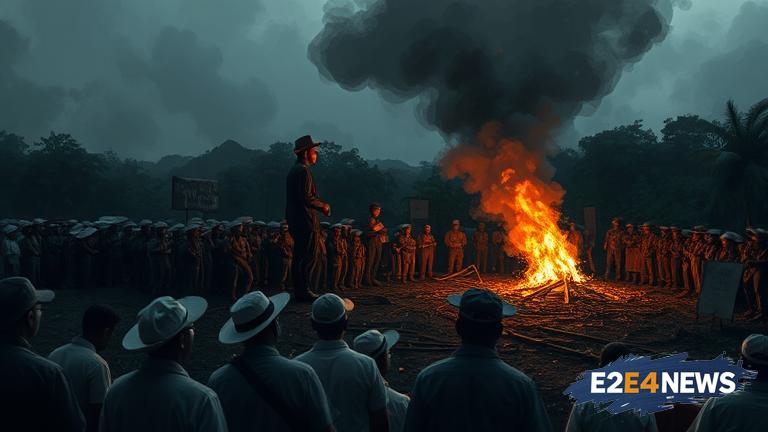The 1990 coup attempt in Trinidad and Tobago was a shocking and traumatic event that shook the nation to its core. On July 27, 1990, a group of armed insurgents, led by Yasin Abu Bakr, stormed the Red House, the seat of the country’s parliament, and took several government officials hostage. The coup attempt was a result of a long-standing feud between the government and the Jamaat al Muslimeen, a radical Islamic group. The group’s leader, Yasin Abu Bakr, had been vocal about his dissatisfaction with the government and had been making threats against the state. The coup attempt was a brazen and violent act that caught the country off guard. The insurgents, who were armed to the teeth, took control of the Red House and held several government officials, including the Prime Minister, hostage. The situation was tense, and the country was plunged into chaos. The government, led by Prime Minister Arthur N.R. Robinson, was forced to negotiate with the insurgents, who were demanding a range of concessions, including the release of their imprisoned members. The negotiations were tense, and the country was on edge as the situation unfolded. The coup attempt was eventually put down, but not before several people were killed, and many more were injured. The aftermath of the coup attempt was marked by a period of reflection and soul-searching, as the country struggled to come to terms with the events that had transpired. The government was forced to confront the underlying issues that had led to the coup attempt, including poverty, inequality, and social injustice. The country also had to deal with the trauma and psychological scars of the event, which had a profound impact on the nation’s psyche. In the years that followed, the government implemented a range of measures to address the underlying issues, including economic reforms and social programs. The country also made significant progress in rebuilding and restoring its institutions, including the parliament and the judiciary. However, the legacy of the coup attempt continues to be felt, and the country is still grappling with the consequences of that fateful day. The event serves as a reminder of the importance of addressing the underlying issues that can lead to social unrest and violence. It also highlights the need for governments to be responsive to the needs of their citizens and to address the root causes of poverty, inequality, and social injustice. The coup attempt was a wake-up call for the country, and it led to a period of significant reform and transformation. The event also had a profound impact on the region, as it highlighted the need for regional cooperation and integration. The Caribbean Community (CARICOM) played a significant role in supporting Trinidad and Tobago during the crisis, and the event served as a catalyst for greater regional cooperation. In conclusion, the July 27 coup attempt was a pivotal moment in Trinidad and Tobago’s history, and it’s essential to remember the events that transpired on that day. The country has made significant progress in rebuilding and restoring its institutions, but the legacy of the coup attempt continues to be felt. The event serves as a reminder of the importance of addressing the underlying issues that can lead to social unrest and violence, and it highlights the need for governments to be responsive to the needs of their citizens.
